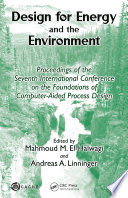
At this year conference in Breckenridge, Colorado, Steve Zitney, Director Collaboratory for Process & Dynamic Systems at the National Energy Technology Laboratory of the U.S. Department of Energy, presented a paper on “Advanced Co-Simulation for Computer-Aided Process Design and Optimization of Fossil Energy Systems with Carbon Capture”. CAPE-OPEN technology has been much used in the APECS project presented as shown through the abstract available for this paper:
“Meeting the increasing demand for clean and affordable energy is arguably the most important challenge facing the world today. In the U.S., projections indicate that fossil fuels, especially coal, will continue to be an important part of the energy portfolio. The use of cheap, abundant coal shifts the challenge from one of energy supply to that of preventing adverse impact on the environment. Developing environmentally friendly and affordable technologies for using coal in future power plants is a major research focus at the DOE’s National Energy Technology Laboratory (NETL). NETL is collaborating closely with industry to address the grand challenge of reducing the time, cost, and technical risk of designing the next-generation of advanced energy systems with carbon capture and storage.
In this paper we will examine the development of high-fidelity, multi-scale “co-simulation” technology and its application to advanced fossil energy systems. More specifically, we will describe progress toward developing and applying NETL’s Advanced Process Engineering Co-Simulator (APECS) which combines process simulation with multiphysics-based equipment simulations, such as those based on computational fluid dynamics (CFD). APECS is compliant with the process-industry CAPE-OPEN software standard and facilitates efficient integration, solution, and analysis of process/equipment co-simulations. This paper will also discuss how process design engineers are using APECS to analyze and optimize overall power plant performance with respect to complex thermal and fluid flow phenomena arising in key equipment items, such as combustors, gasifiers, syngas coolers, carbon capture devices, steam and gas turbines, heat recovery steam generators, cooling towers, and fuel cells.

The full paper is available as Zitney, S.E., “Advanced Co-Simulation for Computer-Aided Process Design and Optimization of Fossil Energy Systems with Carbon Capture,” FOCAPD 2009, Eds. M. M. El-Halwagi and A. A. Linninger, June 7-12, Breckenridge, CO, pp. 185-202 (2009), CRC Press, Taylor & Francis, ISBN 978-1-4398-0912-9
